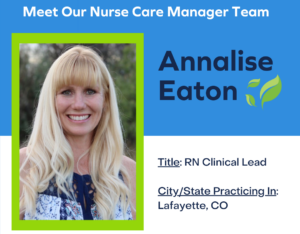So You Want to Be a Parent, and You’re Single. What Are Your Options
Most of us were born into a family and raised as part of a family. Many, many women want to have a family of their own. We go out into the world and look for a partner to help us make that family unit.

But time is going by, you feel your biological clock ticking, and you haven’t found the partner you want to raise a family with.
What to do?
Today there are options that were not available to women a few years ago. IVF using donor sperm or using donor eggs and sperm has enabled many women to become single mothers. There is hope to have a baby of your own.
How Fast Does That Clock Tick?
There are many misconceptions about how easy it is to get pregnant at age 35 or older. According to several studies, many women believe their fertility declines gradually until they reach menopause in their early 50’s, so they believe it’s relatively easy to conceive in their late 30’s and highly possible to conceive at age 40 or older. The prevalence of celebrities who delay childbearing has helped that impression to take hold.
The facts are really different. A woman’s fertility peaks in her mid to late 20’s with a pregnancy rate in each menstrual cycle of 20 to 25 percent and then declines slowly until she is over age 35, when it sharply drops to about 10 percent per cycle. By the time a woman is 40, she has only a 5 percent chance of getting pregnant in any given cycle. The main reason for this is decline of a woman’s ovarian reserve. As the eggs age they are more likely to have genetic abnormalities, so the woman is not able to get pregnant or miscarries so early she doesn’t know she was briefly pregnant.
Celebrities who get pregnant and deliver a child at 40 or older are almost always using donor eggs and IVF. Very few of them are open about their fertility treatments. The few exceptions receive tremendous media attention. But they are exceptions and most definitely not the rule.
What Are Your Options?
The first step for a woman who wants to be a single parent is to consult her gynecologist, especially if she is 35 or older. The gynecologist can prescribe the preliminary tests to find out if there are any issues with her fertility before she consults with a fertility doctor.
Next is to take those test results and have a consultation at a fertility center. The fertility specialist may order more tests. If she is relatively young and doesn’t appear to have fertility issues, the doctor may try intrauterine insemination (IUI) when she is ovulating. Donor sperm is available from sperm banks either directly or through the fertility center, or a woman may find a volunteer donor who is well known to her. A volunteer donor needs to go through health screening including HIV testing and blood typing to prevent problems for the pregnancy and the prospective mother. Not all fertility centers will work with volunteer donors due to possible legal issues (custody, parental rights, child support, etc.) So if you want to use a volunteer donor it is recommended that you do research yourself and seek counsel.
If IUI does not work, in vitro fertilization (IVF) with donor sperm and the woman’s own eggs may be used to produce and transfer embryos. IVF allows the doctor to limit the number of embryos that are transferred so high multiple births like triplets can be avoided. If a woman’s own eggs are of poor quality she can use donor eggs. Donor eggs are often used by women over 40.
Finally, if her own eggs are good but she can’t carry a baby for some reason, such as scarring or other issues with the uterus, it is possible to use a surrogate mother. Laws on surrogacy vary from state to state. It’s best to consult a lawyer experienced in reproductive law if you are considering this.
What Does IVF Cost?
IVF costs vary from state to state and clinic to clinic. In general, an IVF cycle will cost on average $12, 400, plus the cost of fertility drugs and the cost of donor sperm, according to a survey carried out by RESOLVE, the American Infertility Association. Donor eggs, if needed, are an additional investment.
Health insurance covers at least part of fertility treatment in some states and does not cover it in others.
The fertility clinic usually offers a number of different financing plans, from a fixed price for a certain number of fresh and frozen cycles to discounts on a single-cycle basis.
 But time is going by, you feel your biological clock ticking, and you haven’t found the partner you want to raise a family with.
But time is going by, you feel your biological clock ticking, and you haven’t found the partner you want to raise a family with.



